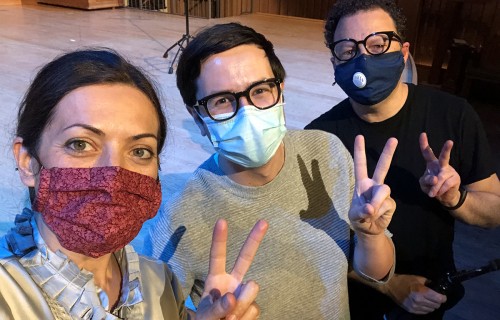Kingston’s Bader Centre: Alacrity in a multiplatform world
Last month I focused on the innovative approach being taken by the Tafelmusik Baroque Orchestra in response to public gatherings being severely restricted. With essential components of live music-making affected indefinitely, arts organizations, both in Canada and around the world, continue to grapple with the realization that almost nothing is the same as it was before. Paradoxically, it seems that these struggles are being felt most acutely by some of our greatest cultural institutions; by the time you read this month’s WholeNote, it will be public knowledge that the Metropolitan Opera is cancelling the remainder of their 2020/21 season, leaving musicians, administrators and other staff furloughed until September 2021, at the earliest.
Part of the problem with such large-scale establishments is their inability to make wide-ranging changes quickly. Think of them as the dinosaurs of the music world: impressively massive, overwhelmingly resilient, and built for long-term duration in a relatively stable environment. However, if the need for quick and pivotal adjustment occurs due to a catastrophic change in the outside environment, there is a very real danger that the factors which made these organizations so great may be the same things that lead to their extinction.
It is with interest, then, that we turn our gaze to Kingston, Ontario, where the Isabel Bader Centre for the Performing Arts has recently released its Fall Festival programming. Obviously much smaller in scale than the Metropolitan Opera, The Isabel is nonetheless a significant presenter of musical performances, ranging in style from classical to folk and everything in between. Accommodating the impositions of a global pandemic is no easy feat, and the Isabel is facing these challenges by adopting a multi-platform approach, offering concerts both virtually and in-person.
Each performance will be streamed live through the Isabel Digital Concert Hall and films of the live concerts will be available to ticketholders for up to seven days after the performance. For those attending in person (at time of writing, a maximum of 50 people), single tickets are available in physically distanced arrangements, with a number of additional safety protocols in place to ensure the health of all concertgoers and staff. While the majority of these measures would have been unthinkable even one year ago, the realities of COVID-19 have required such adaptations from those who are able to do so.



